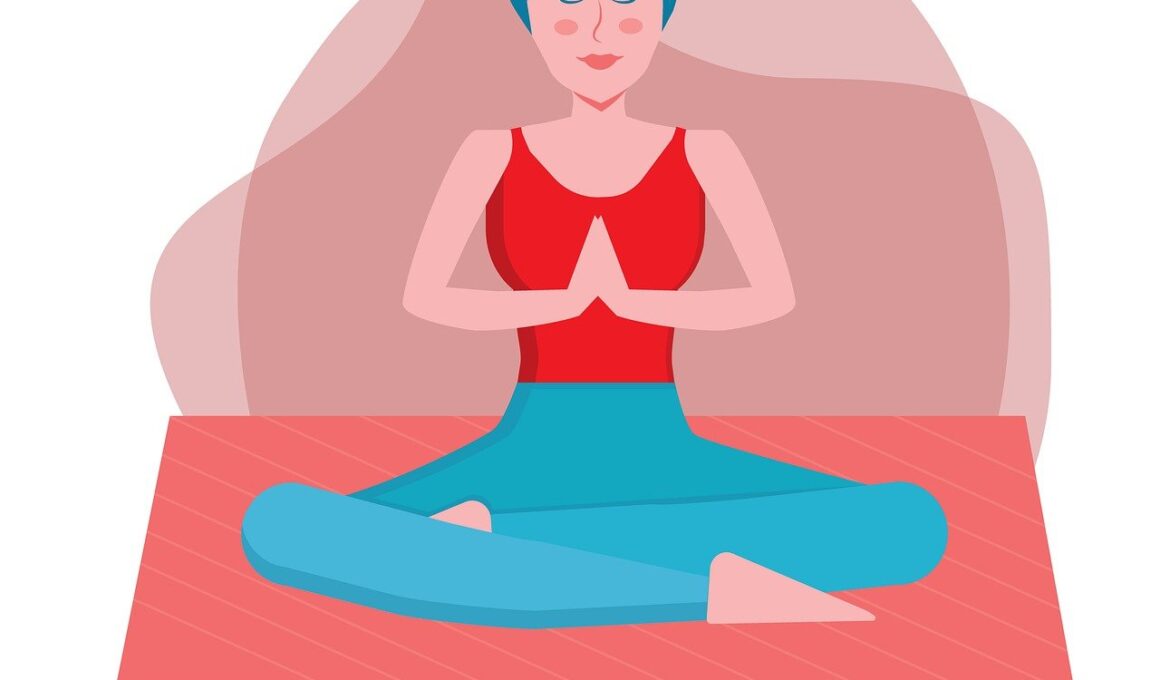Building Endurance with Yoga and Pilates Basics
Building endurance through Yoga and Pilates is an effective way to enhance overall fitness. Both practices focus on strength, flexibility, and balance, but they also promote deep breathing and mindfulness. By integrating these methods into your routine, you will not only improve physical stamina but also cultivate mental resilience. Starting with basic poses is essential for beginners. Each pose should be held for several breaths, allowing you to develop strength gradually. Additionally, focus on alignment and engage your core muscles throughout the practice. Attention to form helps prevent injuries and enhances the benefits of each movement. Regular practice will lead to improved cardiovascular endurance over time. You can also incorporate dynamic routines that challenge your muscles and elevate your heart rate, such as sun salutations and standing balance poses. To optimize your results, combine Yoga and Pilates with other resistance workouts. Hydration and proper nutrition play significant roles in endurance as well, so don’t overlook those aspects. Ultimately, the key is consistency and finding joy in your practice. As you continue to practice, you’ll notice improvements in endurance and overall body awareness.
Building endurance further requires patience and self-compassion. As you embark on this journey of incorporating Yoga and Pilates, remember that progress may be gradual. Setting realistic goals will help you stay committed. It’s crucial to track your achievements to motivate yourself along the way. Engaging with a community, whether in-person or online, can significantly enhance your experience. Participating in group classes can provide accountability and encouragement, which can be essential during challenging times. Furthermore, studying different styles can deepen your understanding. For instance, Ashtanga yoga offers a vigorous sequence that builds strength, while Pilates emphasizes core control. You can also explore restorative Yoga to balance intense workouts. Mixing and matching styles keeps your practice fresh and exciting. Don’t hesitate to modify poses to suit your individual needs and abilities. Accepting where you are in your journey fosters self-acceptance and resilience. When endurance training is enjoyable, you are more likely to stick with it long-term. Use tools like mats, blocks, and even straps to assist yourself as you work on mastering various poses. Ultimately, enjoy the process of growth while prioritizing safety.
The Importance of Breath Control
Breath control remains a vital component in both Yoga and Pilates practices. This practice enhances not only endurance but also focus and relaxation. As practitioners become aware of their breathing patterns, they can learn to synchronize breath with movement. This synchronization is essential for maintaining energy levels throughout each session. Deep, mindful inhalations boost oxygen supply to the muscles, while slow, controlled exhalations help in releasing tension. When you harness the power of your breath, you unlock additional endurance capabilities. Incorporating breath exercises can be beneficial. Techniques such as diaphragmatic breathing and alternate nostril breathing can help enhance stamina and concentration. Practicing such techniques can be particularly useful during challenging sequences. In every Yoga and Pilates session, dedicate time to focus solely on your breath. With time, this practice leads to a remarkable improvement in endurance levels and overall performance. Furthermore, integrating breath awareness cultivates mindfulness, reducing stress and anxiety. A calm mind, in turn, supports a stronger and more focused body. Emphasizing breath control not only amplifies the physical aspects of training but also nurtures mindfulness that extends beyond the practice mat.
A balanced approach to Yoga and Pilates training involves understanding your body and recognizing its limits. Listening to your body prevents overexertion and injury. As you work on building endurance, respect individual differences in flexibility and strength. Every person’s journey is unique. Acknowledging where you are allows you to progress at your own pace. Regular practice leads to more significant outcomes than sporadic workouts. Establishing a consistent schedule can help in developing muscle memory and deeper body awareness. You might consider attending classes or following online tutorials that have clear guidance. Ensure proper warm-ups to prepare muscles for more intense activities; this can help prevent injuries. After practicing, it’s equally important to cool down and stretch, avoiding muscle tightness. Gradual progression can keep you motivated as you notice improvements. Joining classes designed for endurance training gives targeted instruction and feedback. You can also find useful resources online that provide guidance for combining Yoga and Pilates effectively. Keep challenging yourself as you advance, exploring new levels of endurance through creative sequences that incorporate a combination of movements.
Nutrition’s Role in Enhancing Endurance
Nutrition significantly influences overall endurance levels and performance in Yoga and Pilates. A well-rounded diet fuels your body for optimal functioning. Incorporate a variety of fruits, vegetables, whole grains, and lean proteins to support muscle growth and recovery. Hydration is similarly crucial, as it affects energy levels and cognitive function. Water plays an essential role in regulating body temperature during workouts. Aim to drink sufficient water before, during, and after your workouts. Additionally, consider nutrient timing. Consuming a balanced meal or snack containing carbohydrates and proteins about 30 minutes post-workout can aid muscle repair and replenish glycogen stores. Supplements may also assist, but focus on whole foods first. You might consider foods rich in omega-3 fatty acids and antioxidants, which support overall cardiovascular health. Eating balanced meals helps reduce fatigue and encourages consistency in training. Furthermore, being mindful of meal portions can prevent feeling heavy during yoga sessions. Establishing healthy eating habits creates a solid foundation for endurance-building practices. Experiment and pay attention to how different foods affect your performance. The goal is to discover what works best for your body and supports your training efforts.
Mindset development proves essential in building endurance. Maintaining a positive outlook significantly impacts your ability to progress. Consider practicing gratitude and affirmations as you move through challenging sequences. Encouraging self-talk plays an influential role in keeping motivation high. Rather than focusing on limitations, celebrate achievements, large and small. Each pose you master or each workout completed adds to your overall endurance. Furthermore, mentally challenging yourself during training can help increase resilience over time. Visualizing success contributes positively to performance, enhancing motivation and confidence. Mindfulness techniques developed during your practice extend into daily life, supporting perseverance in other areas. Cultivating resilience involves understanding that growth comes through challenges; each moment of discomfort serves as an opportunity for growth. Establishing goals can help channel your thoughts and energy into something meaningful. Choose short-term and long-term objectives that excite you. This approach promotes accountability while adding structure to your training. Tracking progress engages your mind in noticing improvements, fueling motivation. Prioritize setting intentions for each session, maintaining focus that aligns with your objectives. Your mental approach is just as crucial as physical training in building lasting endurance.
Final Thoughts on Your Endurance Journey
Your journey towards endurance in Yoga and Pilates is a personal and evolving experience. Embrace the process, finding joy in every step. Balancing different routines and incorporating variety keeps workouts engaging while promoting growth. Through consistency, patience, and positivity, you’ll develop not just physical endurance, but mental strength too. You will encounter obstacles and challenges, yet each provides a learning opportunity. Seek connection with supportive communities, fostering connections with fellow practitioners. Sharing experiences and tips nurtures motivation and inspiration. Remember to practice self-care outside of workouts as well. Rest, recovery, and relaxation are equally vital components in your endurance journey. Cultivating a holistic approach ensures a sustainable lifestyle, allowing you to enjoy your practice fully. Record your progression, celebrating each milestone along the way, no matter how small. Embrace the growth it brings to your body and mind. Ultimately, remaining adaptable to change will keep your practice aligned with your evolving needs. Your Yoga and Pilates journey can significantly enhance both endurance and well-being over time, providing numerous physical and mental benefits. Stay open to exploration while enjoying the transformation ahead.


